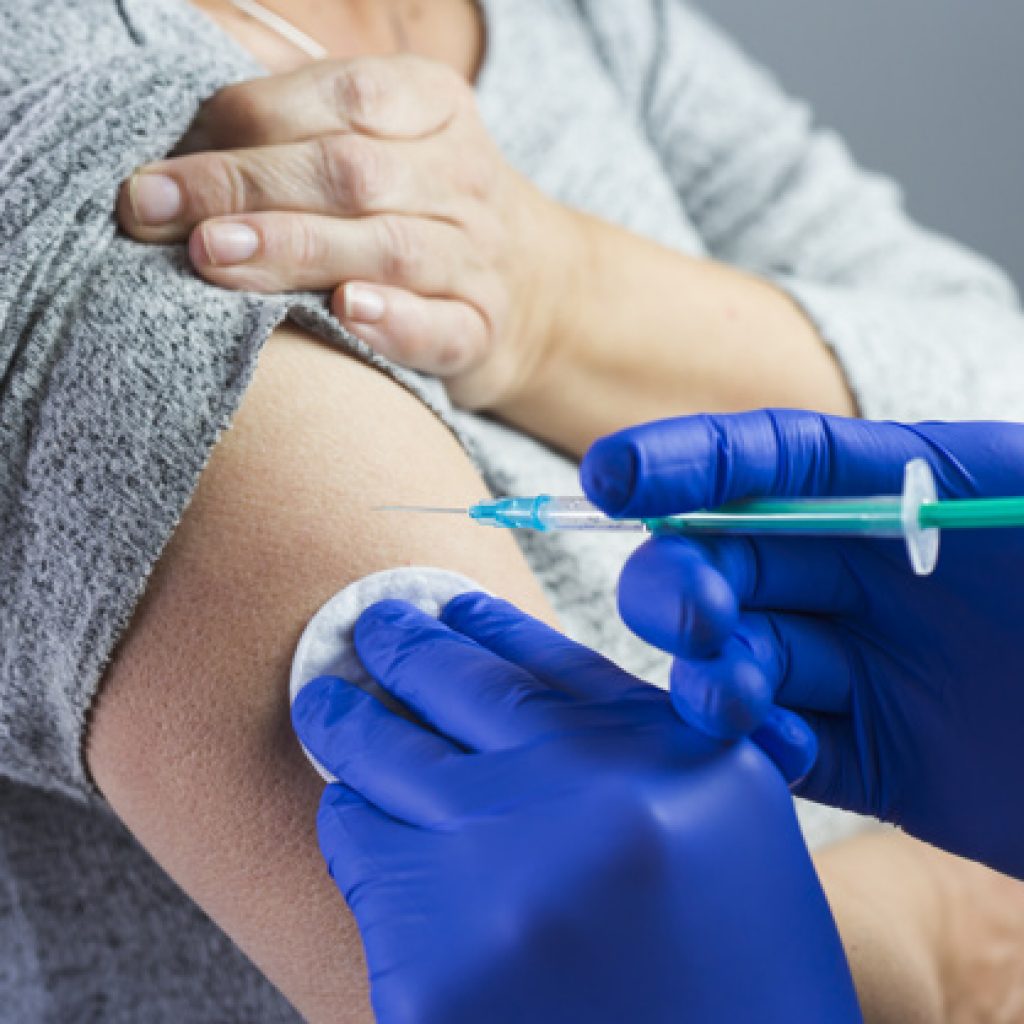Swiss healthcare company Roche gets through coronavirus antibody test by Public Health England

The first coronavirus antibody test that could help ease lockdown in the UK has been given the go-ahead by Public Health England.
No10 is now keen to get its hands on “as many of these as possible” after the potentially game-changing kit was developed by Swiss healthcare company Roche.
Roche is said to be on standby to provide hundreds of thousands of laboratory-based tests to the NHS each week.
Recent efforts to produce antibody tests have been plagued by inaccurate results – but PHE has backed Roche Diagnostics’ claims its new test can spot 100 per cent of those who have had the virus with “no false negatives”.
The test supports the detection of antibodies in patients who have been exposed to coronavirus and will therefore be immune from catching the bug again.
They will be instrumental in the UK lifting strict lockdown measures and allow people to return to work – with the government even suggesting granting “immunity passports” to those who pass the test.
‘POTENTIAL GAME-CHANGER’
Professor John Newton, the national coordinator of the UK Coronavirus Testing Programme, said: “We were confident that good quality antibody tests would become available when they were needed.
“Last week, scientific experts at PHE Porton Down carried out an independent evaluation of the new Roche SARS-CoV-2 serology assay in record time, concluding that it is a highly specific assay with specificity of 100 per cent.
“This is a very positive development, because such a highly specific antibody test is a very reliable marker of past infection.
“This in turn may indicate some immunity to future infection, although the extent to which the presence of antibodies indicates immunity remains unclear.”
Sir John Bell, Professor of Medicine at Oxford University, said that it was “a major step forward” in the evolution of antibody tests.
However, he added that more work needs to be done to understand the meaning of a positive result.
He told BBC Radio 4’s Today Programme: “There will be further iterations of these tests because there are ways to make them better I think and we are still yet to understand what a positive result actually means.
“We’re not there yet but this is a big step in the right direction.”
When questioned about why the UK was ten days behind the EU and US in approving the Roche test, Prof Bell said: “I think the approval mechanism does take longer than it should ideally do.
“But remember when the home-based test came out and people were rushing around saying these are all terrific.
“We decided we should stop and pause and just make sure that they were what they were cut out to be.
“And when we tested them they of course didn’t work, so I think you have to be a bit cautious. It’s taken a week or two longer than it might have.”
What is an antibody test?
The antibody test is different to the swab test that the Government is currently using.When a person gets infected with a virus, the body starts making specially designed proteins called antibodies to fight the infection.After they recover, those antibodies float in the blood for months, maybe even years.So a test that specifically looks for antibodies will be able to tell whether you’ve already been exposed to Covid-19.Anyone who has already had the illness is presumed to be immune to getting it again.The check that has been developed for Covid-19 is a finger-prick blood test, with the samples sent to laboratories and results available within a few days.
Steve Brine, a former health minister, branded the move a “potential game-changer” and urged the government to move quickly if the science is correct.
He told the newspaper: “I’d want to be confident of the science behind it, and what’s more confident than the epidemiology which tells us that once you’ve had the antibody you can’t get it again.
“There is still no consensus in the scientific community, but potentially it is a game-changer – not just for frontline workers but also for the wider population who could take great confidence from this to turn baby steps into bigger steps.
“The truth is it is far harder to get out of lockdown than it is to get in because public opinion – partly because we saw our Prime Minister nearly lose his life over this – is quite circumspect. Something like this could give people confidence, providing the science is published and agreed that it works [by indicating immunity].”The Government’s current swab test can only tell whether a person has the virus, not if they have had it and recovered.
When a person gets infected with a virus, the body starts making specially designed proteins called antibodies to fight the infection.
After they recover, those antibodies float in the blood for months, maybe even years.
So a test that specifically looks for antibodies will be able to tell whether you’ve already been exposed to Covid-19.
What is still unclear, is whether or not those antibodies will protect a person from reinfection – and if so, for how long.
FRONT-LINE WORKERS
Health minister Edward Argar said the Government wants to roll out a new “game-changer” antibody test to frontline workers first.
Speaking to BBC Breakfast, Mr Argar said: “We’re in discussion at the moment with Roche on this.
“It’s only just gone through the Public Health England assessment as being reliable, as doing the job, and therefore we are having those discussions.
“But we are keen to get as many as quickly as we can and get them out, primarily to the front line first, the NHS, social care and then more widely.
“Because this really will be – as the Prime Minister said – this has the potential to be a game-changer.”
Mr Argar added that the Government is not yet in a position to roll out the new antibody tests to the public.
Speaking to BBC Radio 4’s Today programme, he said: “It has only just got the green light.
“Obviously we will have had kits to test, but we are not in a position at this point to give these tests out.”
He added: “So we’re not in a position yet to roll it out to the public and have those tests ready to go.”
It comes as the World Health Organisation’s chief scientist revealed the coronavirus pandemic could take up to five years to get under control.
Soumya Swaminathan said a vaccine “seems for now the best way out” but warned there are “lots of ifs and buts” in guaranteeing its safety.
The WHO chief scientist told the FT’s Global Boardroom digital conference: “I would say in a four to five-year timeframe, we could be looking at controlling this.”
But she warned a number of factors would have to be considered – including whether the killer bug matures and what containment measures are put in place.
The scientist gave the bleak outline as other experts warned no one can predict when the deadly disease will disappear if it even vanishes at all.
VACCINE IS KEY
Dr Mike Ryan, who heads up the organisation’s health emergencies programme, said: “We have a new virus entering the human population for the first time, and therefore it is very hard to predict when we will prevail over it.
“What is clear, and I think maybe what Soumya may have been alluding to, is that the current number of people in our population who’ve been infected is actually relatively low.
“And if you’re a scientist, and you project forward in the absence of a vaccine, and you try and calculate ‘how long is it going to take for enough people to be infected so that this disease settles into an endemic trace’?
“And it is important to put this on the table – this virus may become just another endemic virus in our communities. And this virus may never go away.
“HIV has not gone away, we’ve come to terms with the virus and we have found the therapies and we found the prevention methods, and people don’t feel as scared as they did before and we’re offering long healthy life to people with HIV.”
The doctor also said lockdown shouldn’t be eased with appropriate surveillance measures in place otherwise it will be a case of “counting the bodies in the morgue” to see if relaxing the measures have worked.
Dr Ryan echoed his colleague and said the best way to globally eradicate the virus would be developing a vaccine made available to everyone.










